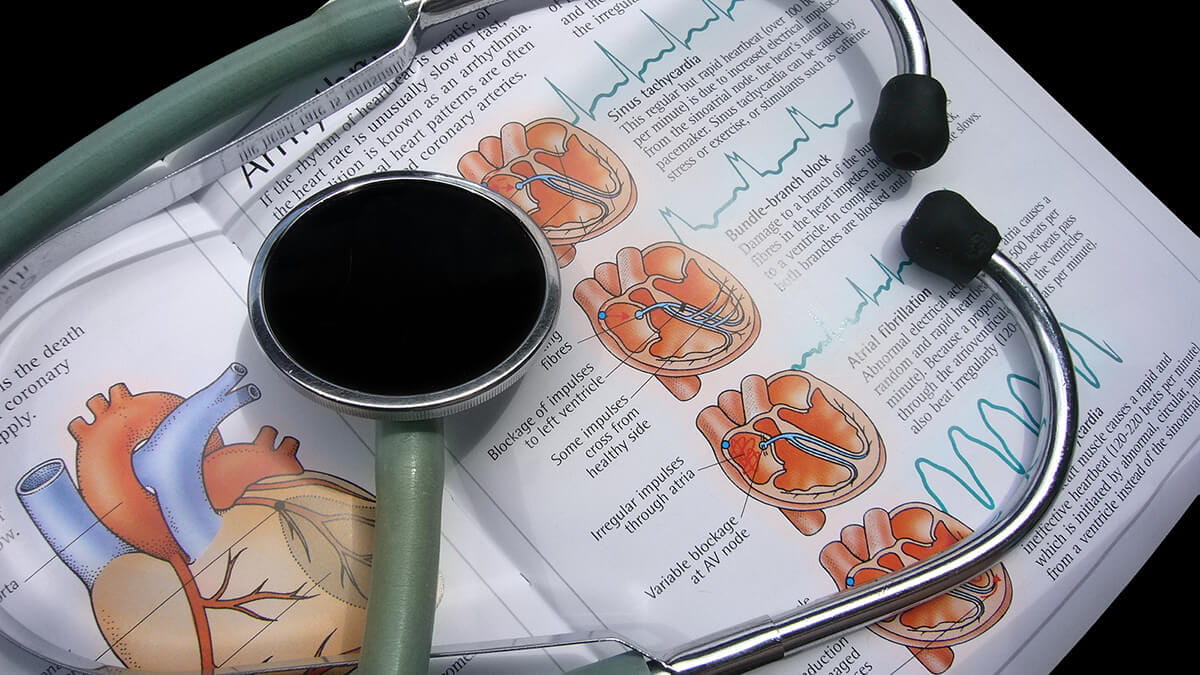In the 21st century, medical advances can seem to move at the speed of light, bringing with them the promise of healthier, longer lives. As researchers strive to find causes, treatments, and cures, their efforts can be game changers in reducing mortality from the most common health threats.
“Of the 56.9 million deaths worldwide in 2016, more than half (54%) were due to the top 10 causes,” the World Health Organization (WHO) said in a 2018 news release. “Ischemic heart disease and stroke are the world’s biggest killers, accounting for a combined 15.2 million deaths in 2016. These diseases have remained the leading causes of death globally in the last 15 years.”
According to the WHO, the top 10 causes of death globally in 2016 were:1
- Ischemic heart disease
- Stroke
- Chronic obstructive pulmonary disease
- Lower respiratory infections
- Alzheimer’s disease and other dementias
- Trachea, bronchus, and lung cancers
- Diabetes mellitus
- Road injury
- Diarrheal diseases
- Tuberculosis
When you look at data for the United States, heart disease is also the No. 1 cause of death. But the picture changes after that. According to the Centers for Disease Control and Prevention (CDC), the leading causes of death in the U.S. in 2017 were:2
- Heart diseases
- Malignant neoplasms
- Accidents (unintentional injuries)
- Chronic lower respiratory diseases
- Cerebrovascular diseases
- Alzheimer’s disease
- Diabetes mellitus
- Influenza and pneumonia
- Nephritis, nephrotic syndrome, and nephrosis
- Intentional self-harm (suicide)
“In 2017, the 10 leading causes of death accounted for 74% of all deaths occurring in the United States. The rank order of causes in 2017 remained the same as in 2016,” the CDC said.
Many RNs—from degree-seekers in master’s in nursing programs to nurse executives—make monitoring relevant data like this a priority. If you’re one of the nation’s more than 3 million working RNs,3 earning a degree online can help you advance your efforts in the ever-changing healthcare landscape.
To make the most of your nursing education, choose a Master of Science in Nursing (MSN) degree program with accreditation from the Commission on Collegiate Nursing Education (CCNE). Walden University’s MSN program is not only CCNE-accredited, but Walden produces more nurses with advanced degrees than any other university.4
Walden’s online nursing school lets you tailor your studies to your career goals. If you’re passionate about providing direct care, you may choose from one of four specializations that prepare you to pursue certification and credentialing as a nurse practitioner:
- Adult/Gerontology Acute Care Nurse Practitioner
- Adult/Gerontology Primary Care Nurse Practitioner
- Family Nurse Practitioner
- Psychiatric and Mental Health Nurse Practitioner
If your goal is to teach or to pursue an advanced leadership role, you may opt for these online MSN programs:
Walden’s MSN faculty are 100% doctorally prepared. As a MSN candidate, you’ll refine your skills with state-of-the-art classroom tools. And with Walden, you can earn a degree while working in your current position, allowing you to use what you learn immediately. Reach for the highest levels of professionalism and service with an MSN degree from the leader in nursing education.4
Walden University is an accredited institution offering a Master of Science in Nursing (MSN) degree program online with eight specializations. Expand your career options and earn a degree using a convenient, flexible learning platform that fits your busy life.
1Source: www.who.int/news-room/fact-sheets/detail/the-top-10-causes-of-death
2Source: www.cdc.gov/nchs/data/nvsr/nvsr68/nvsr68_06-508.pdf
3Source: www.bls.gov/ooh/healthcare/registered-nurses.htm#tab-3
4Source: National Center for Education Statistics (NCES) IPEDS database. Retrieved July 2017, using CIP codes 51.3801 (Registered Nursing/Registered Nurse); 51.3808 (Nursing Science); 51.3818 (Nursing Practice). Includes 2016 preliminary data.
Accreditation Statement
The baccalaureate degree program in nursing (BSN), master’s degree program in nursing (MSN), and Doctor of Nursing Practice (DNP) program at Walden University are accredited by the Commission on Collegiate Nursing Education (www.ccneaccreditation.org).
Officially recognized by the U.S. Secretary of Education as a national accreditation agency, CCNE is an autonomous accrediting agency contributing to the improvement of the public's health. CCNE ensures the quality and integrity of baccalaureate, graduate, and residency programs in nursing.
Walden University is accredited by The Higher Learning Commission, www.hlcommission.org.




